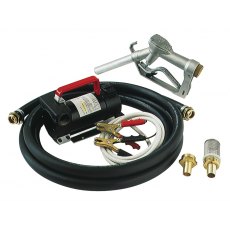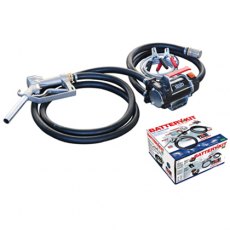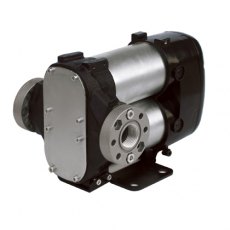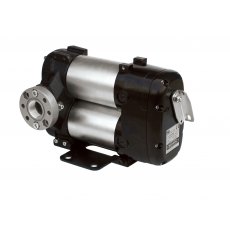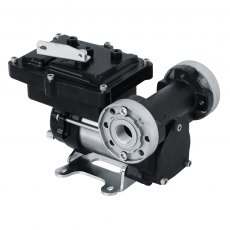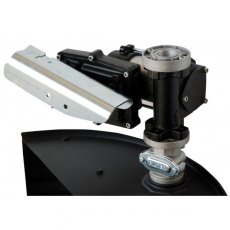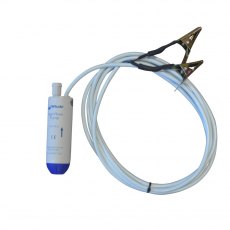Battery Fuel Transfer Pumps
24V electric fuel transfer pumps are specially designed for use with vehicle electrical systems, making them perfect for mobile refuelling operations. These pumps are commonly used in fleet management, construction sites, and agricultural settings where on-site fuel transfer is crucial. Their compatibility with 24V systems allows for direct connection to many trucks and heavy machinery. At Fuel Tank Shop, we offer a range of 24V pumps to cater to different mobile fuelling needs – from compact models ideal for pickup trucks to larger capacity pumps for fuel bowsers. Some models come with additional features like digital meters for accurate fuel tracking or extended hoses for easier reach.
When choosing a 24V electric fuel transfer pump, consider factors such as flow rate, duty cycle, and compatibility with your vehicles. For stationary applications, you might also want to explore our electric fuel transfer pumps for higher power options.
Battery Fuel Transfer Pumps FAQs
How long can a 12V pump run on a battery?
This will depend on several factors, including the type and size of the battery, the pump's motor efficiency, and the amount of fuel being transferred. A fully charged 12V pump should run for several hours. However, if you are transferring a large amount of fuel or using the pump for an extended period, the battery may run out of power more quickly. It helps to choose a high-quality battery with a high amp-hour rating. Additionally, you can reduce the strain on the battery by using a pump with a more efficient motor, or by using the pump intermittently rather than continuously. It is also important to monitor the battery's charge level and recharge it as needed. Some 12V pumps come with built-in battery monitors or low-voltage shut-off features to help prevent damage to the battery
Can I use a 18v battery on a 12V pump?
It is not recommended to use an 18V battery on a 12V pump. This is because the voltage of the battery needs to match the voltage of the pump to ensure proper function and prevent damage to both the pump and the battery. When you use a battery with a higher voltage than the pump is designed for, the motor in the pump will spin faster than intended. This can cause excessive wear and tear on the motor, which can lead to overheating, damage to the pump's internal components, and even total failure of the pump. In some cases, a pump may have a voltage range that it can operate within, which could allow it to function with an 18V battery. However, it is always best to consult the manufacturer's instructions and specifications before using a battery with a different voltage than what is recommended.
How many amps is a 12V fuel pump?
The number of amps will depend on the specific model. In general, a typical 12V fuel pump will draw between 4 and 10 amps. However, some high-performance fuel pumps may require more amps to operate at their maximum flow rate. Additionally, if the fuel pump is being used for an extended period, it may draw more amps than it does during a short-term operation. It is important to check the manufacturer's specifications for the specific fuel pump you are using to determine the exact number of amps it requires. This information can help you choose an appropriate power source, such as a battery or power supply, that can provide enough current to operate the fuel pump without damaging it. If you are unsure about the amperage requirements for any of our 12V fuel pumps, you can contact our friendly and knowledgeable team.


